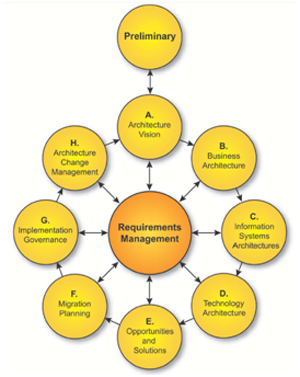Businesses are under constant challenge to deliver growth and profitability. Business process improvements and other enterprise quality initiatives are vital for the enterprise to do more with less, but they are not sufficient. When businesses feel there is opportunity for transformation, they may engage a business architect. Many organizations do not have the benefit of established architecture processes and architecture governance for the enterprise, which makes the task of the business architect even more difficult. It becomes incumbent on the business architect to educate and navigate stakeholders through architectural aspects of business transformation.
Business transformation may either impact single business unit or multiple business units. When business transformation affects multiple business units, leveraging a formal business architecture will help immensely in a business transformation, readiness assessment. In addition to the business architect, support from IT architects is important for the success of an architecture project. Success of such an architecture project will help set the tone for future architecture engagement in the organization. Clearly note that the business architect plays a pivotal role in ensuring that the scope and objectives for an architecture project align with business transformation goals. Social skills and persuasive skills also come in handy for a business architect to aid in dealing with stakeholders across multiple businesses.

Figure-1 ADM lifecycle TOGAF 9i
If the organization has established enterprise architecture processes and governance, a business architect can leverage them to initiate an architecture project. On the other hand, if the organization does not have standardized enterprise architecture processes, the business architect has to take a vanguard role in adapting tailored industry standard processes to engage the IT architects.
For example, Figure-1 shows Architecture Development Method (ADM) from TOGAF. Figure-1 effectively articulates the interdependence between different architectural disciplines. To aid in aligning standardized approaches and best practices, the BIZBOK™ Guide v3.1ii compares and contrasts business architecture artifacts with artifacts represented within TOGAF ADM. This compare and contrast approach enables business architects to align industry best practices for business architecture in the BIZBOK™ Guide with the TOGAF approach. Please refer to BIZBOK v3.5, Section 6.2 for details.
The business architect works with various IT architects to develop a project plan along with roles and responsibilities. This tends to blur the line between the business architect and the Enterprise architect, and it puts the business architect in a dilemma. Andrew Guitarte in his article “Business Architects Architect your Success”iii draws a distinction between business architecture and enterprise architecture based on the customers served. To address gaps in the service of these customers, in situation where executives are looking for answers from the business architect, the business architect must take the initiative to fill gaps left by the absence of established enterprise architecture processes and governance.
Conclusion: In the absence of standardized architecture processes, governance and enterprise architects, business architects may find themselves needing to fill certain responsibilities commonly assigned to the enterprise architect. This responsibility includes filling in gaps and weaknesses found in industry frameworks for enterprise architecture by incorporating industry best practices for business architecture into those frameworks. This poses a dilemma for the business architect, forcing the business architect to obtain buy-in from relevant stakeholders to address these responsibilities. Ideally, this will lead to the hiring of an enterprise architect and establishment of enterprise architecture processes and governance.
References
i Source: The Open group architecture framework.
ii Source: Business Architecture Guild.
iii Source: Andrew Guitarte.

















